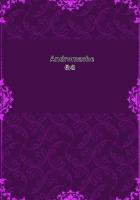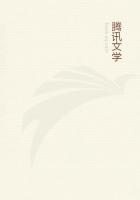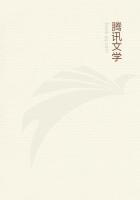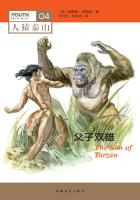Our conception of the nature of Odours must be analogous to that of Savours; inasmuch as the Sapid Dry effects in air and water alike, but in a different province of sense, precisely what the Dry effects in the Moist of water only. We customarily predicate Translucency of both air and water in common; but it is not qua translucent that either is a vehicle of odour, but qua possessed of a power of washing or rinsing [and so imbibing] the Sapid Dryness.
For the object of Smell exists not in air only: it also exists in water. This is proved by the case of fishes and testacea, which are seen to possess the faculty of smell, although water contains no air (for whenever air is generated within water it rises to the surface), and these creatures do not respire. Hence, if one were to assume that air and water are both moist, it would follow that Odour is the natural substance consisting of the Sapid Dry diffused in the Moist, and whatever is of this kind would be an object of Smell.
That the property of odorousness is based upon the Sapid may be seen by comparing the things which possess with those which do not possess odour. The elements, viz. Fire, Air, Earth, Water, are inodorous, because both the dry and the moist among them are without sapidity, unless some added ingredient produces it. This explains why sea-water possesses odour, for [unlike 'elemental' water] it contains savour and dryness. Salt, too, is more odorous than natron, as the oil which exudes from the former proves, for natron is allied to ['elemental'] earth more nearly than salt. Again, a stone is inodorous, just because it is tasteless, while, on the contrary, wood is odorous, because it is sapid. The kinds of wood, too, which contain more ['elemental'] water are less odorous than others.
Moreover, to take the case of metals, gold is inodorous because it is without taste, but bronze and iron are odorous; and when the [sapid] moisture has been burnt out of them, their slag is, in all cases, less odorous the metals [than the metals themselves]. Silver and tin are more odorous than the one class of metals, less so than the other, inasmuch as they are water [to a greater degree than the former, to a less degree than the latter].
Some writers look upon Fumid exhalation, which is a compound of Earth and Air, as the essence of Odour. [Indeed all are inclined to rush to this theory of Odour.] Heraclitus implied his adherence to it when he declared that if all existing things were turned into Smoke, the nose would be the organ to discern them with. All writers incline to refer odour to this cause [sc. exhalation of some sort], but some regard it as aqueous, others as fumid, exhalation; while others, again, hold it to be either. Aqueous exhalation is merely a form of moisture, but fumid exhalation is, as already remarked, composed of Air and Earth. The former when condensed turns into water;the latter, in a particular species of earth. Now, it is unlikely that odour is either of these. For vaporous exhalation consists of mere water [which, being tasteless, is inodorous]; and fumid exhalation cannot occur in water at all, though, as has been before stated, aquatic creatures also have the sense of smell.
Again, the exhalation theory of odour is analogous to the theory of emanations. If, therefore, the latter is untenable, so, too, is the former.
It is clearly conceivable that the Moist, whether in air (for air, too, is essentially moist) or in water, should imbibe the influence of, and have effects wrought in it by, the Sapid Dryness. Moreover, if the Dry produces in moist media, i.e. water and air, an effect as of something washed out in them, it is manifest that odours must be something analogous to savours. Nay, indeed, this analogy is, in some instances, a fact [registered in language]; for odours as well as savours are spoken of as pungent, sweet, harsh, astringent rich [='savoury']; and one might regard fetid smells as analogous to bitter tastes; which explains why the former are offensive to inhalation as the latter are to deglutition. It is clear, therefore, that Odour is in both water and air what Savour is in water alone. This explains why coldness and freezing render Savours dull, and abolish odours altogether; for cooling and freezing tend to annul the kinetic heat which helps to fabricate sapidity.
There are two species of the Odorous. For the statement of certain writers that the odorous is not divisible into species is false; it is so divisible. We must here define the sense in which these species are to be admitted or denied.
One class of odours, then, is that which runs parallel, as has been observed, to savours: to odours of this class their pleasantness or unpleasantness belongs incidentally. For owing to the fact that Savours are qualities of nutrient matter, the odours connected with these [e.g. those of a certain food] are agreeable as long as animals have an appetite for the food, but they are not agreeable to them when sated and no longer in want of it; nor are they agreeable, either, to those animals that do not like the food itself which yields the odours. Hence, as we observed, these odours are pleasant or unpleasant incidentally, and the same reasoning explains why it is that they are perceptible to all animals in common.
The other class of odours consists of those agreeable in their essential nature, e.g. those of flowers. For these do not in any degree stimulate animals to food, nor do they contribute in any way to appetite; their effect upon it, if any, is rather the opposite. For the verse of Strattis ridiculing Euripides-Use not perfumery to flavour soup,contains a truth.
Those who nowadays introduce such flavours into beverages deforce our sense of pleasure by habituating us to them, until, from two distinct kinds of sensations combined, pleasure arises as it might from one ****** kind.

